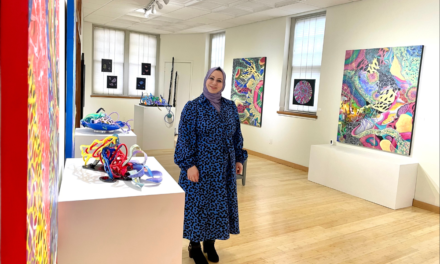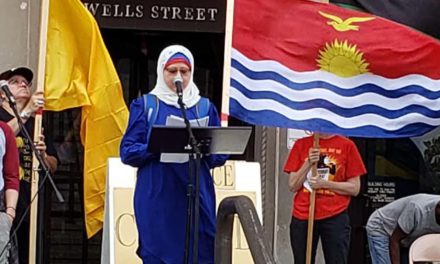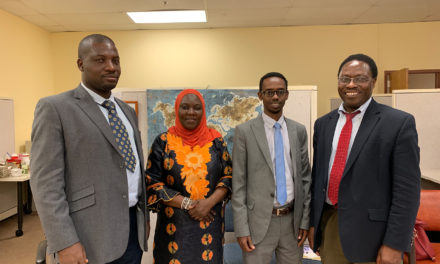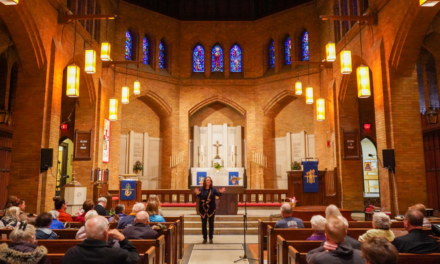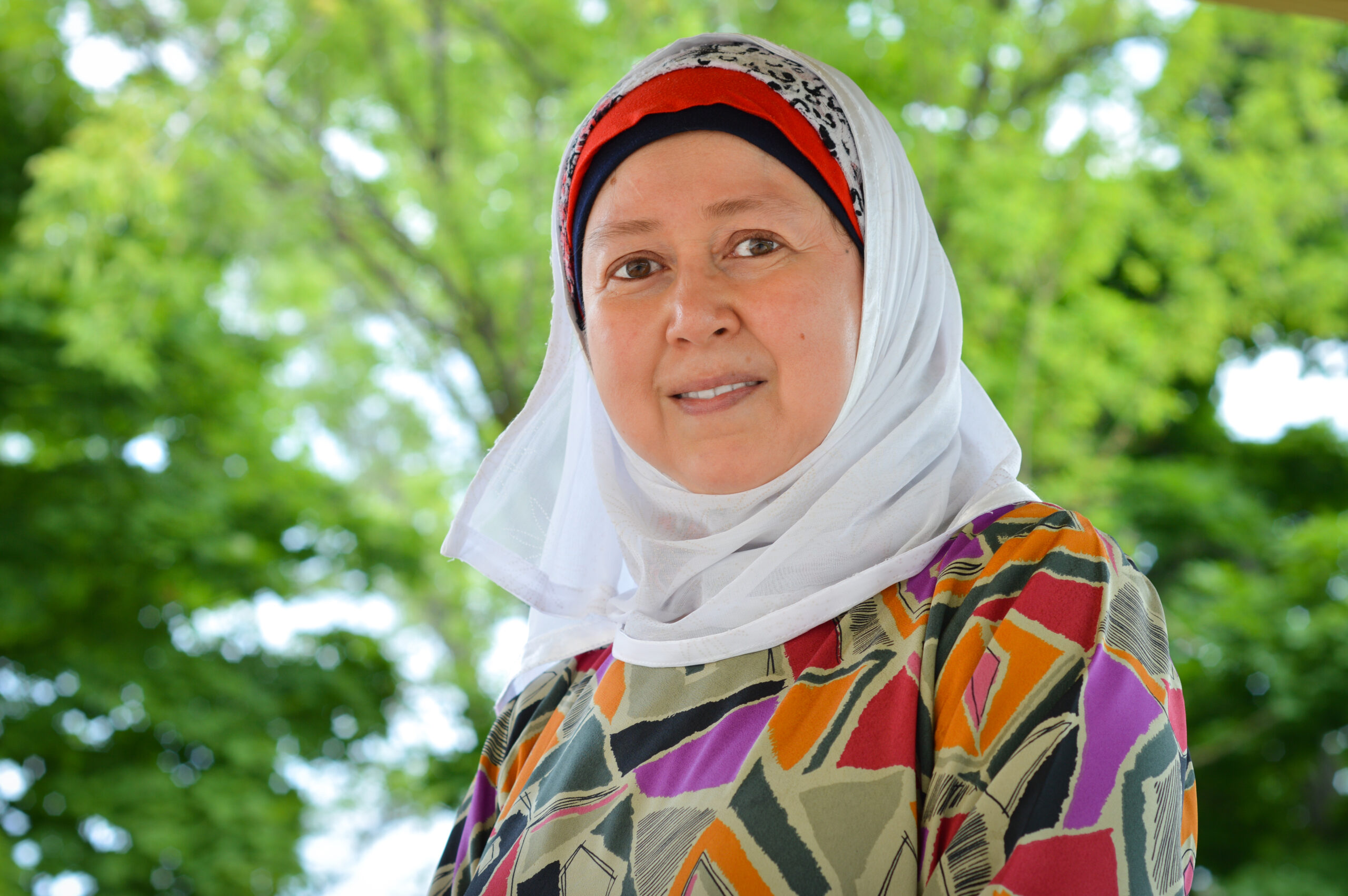
Photos courtesy of Wisconsin Green Muslims
Wisconsin Green Muslims founder Huda Alkaff will speak about the connections between faith and environmental stewardship at the Muslim Women’s Coalition’s Oct. 25 networking brunch at the Islamic Resource Center in Greenfield.
Wisconsin Muslims are paying more attention to environmental stewardship, largely thanks to Huda Alkaff of West Bend. She advises mosques and Muslim organizations about how to be “greener” through education, energy and water conservation, and recycling and waste management, including reducing the use of plastics and Styrofoam.
Alkaff’s guidance to Masjid Al-Quran in Milwaukee helped the Milwaukee mosque when third place nationally in the Islamic Society of North America’s Green Awards.
She will speak about connections between faith and environmental stewardship at the Muslim Women’s Coalition’s Networking Brunch, Friday, Oct. 25, 10 a.m. to 12 p.m. at the Islamic Resource Center, 5235 S. 27th St., Greenfield.
Taqwa’s Bakery & Restaurant will provide lunch. Registration is $15. RSVP here.
Wisconsin’s leader on environmental stewardship
In 2005, Alkaff founded Wisconsin Green Muslims, a state-wide grassroots environmental justice group that connects faith, environmental justice, sustainability and healing through education and service. It addresses environmental justice issues related to climate change, clean air and pure water, healthy food, solar energy and energy efficiency, waste reduction and transportation equity,” says its website.
She is also one of 12 people nationwide recognized by the White House in 2015 as “Champions of Change” for their efforts in protecting the environment and communities from the effects of climate change. She has served on the national Environmental Justice Leadership Forum since 2017.
Alkaff is also a founding member of the Islamic Society of North America Green Initiatives Team, through a partnership between ISNA and the U.S. Environmental Protection Agency’s ENERGY STAR program.
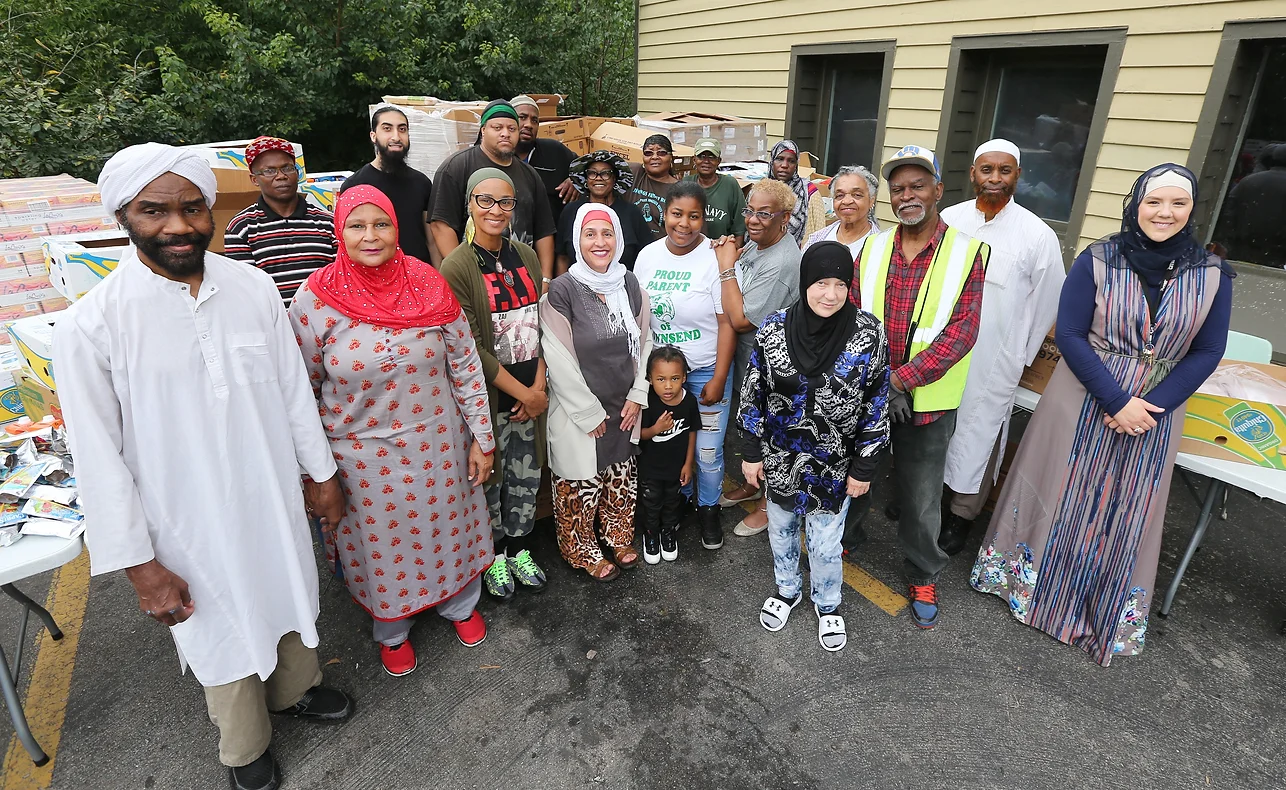
Photo courtesy of the Milwaukee Islamic Dawah Center
The Milwaukee Islamic Dawah Center was a finalist of the Islamic Society of North America’s 2024 Green Masjid Awards. Wisconsin Green Muslims advised the Dawah Center on developing a recycling program and other green initiatives.
Faith, environmental justice, sustainability and healing
Alkaff shared a preview with the Wisconsin Muslim Journal of her upcoming talk at the MWC Networking Brunch. She will discuss the connections between faith, environmental justice, sustainability and healing. Here are the highlights.
What is Wisconsin Green Muslims?
We are a small, statewide, grassroots environmental justice group. Our goal is to connect faith, environmental justice, sustainability and healing through education and service. It intends to educate the Muslim community and the general public about the Islamic environmental justice teachings, to apply these teachings in daily life and to contribute to collaboration and coalitions working toward a just, healthy, peaceful and sustainable future.
What does Islam say about environmental stewardship?
Islamic teachings are rich with environmental messages, and the true practice of Islam really means living simply, treading lightly on Earth, caring for our neighbors and all creatures, standing up for justice and collaborating with others to care for our common home.
It is a duty and obligation on Muslims to care for Earth, our common home. God states in the Qur’an (6:165), “It is God who has made you viceroys on earth.”
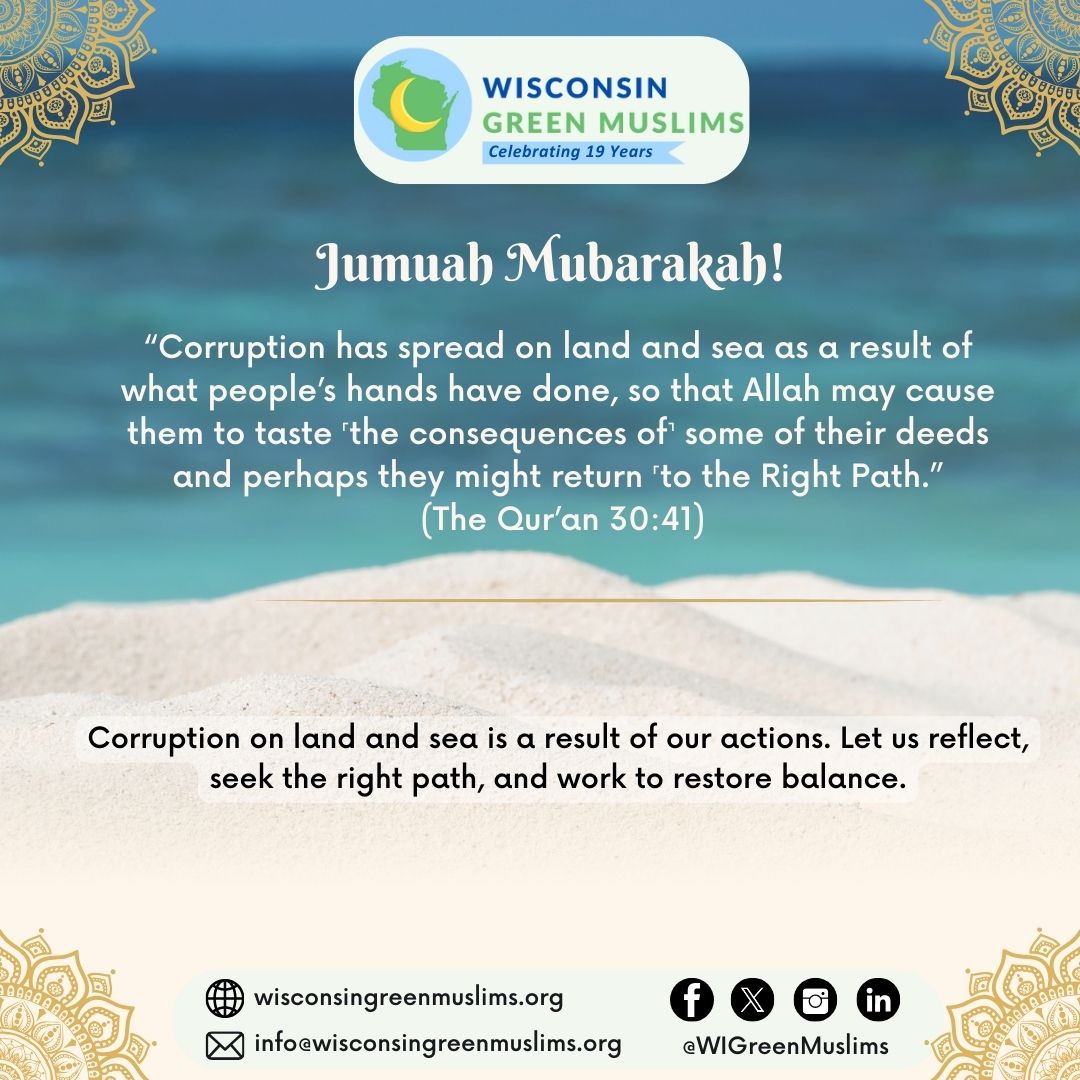
Wisconsin Green Muslims looks to the Qur’an and Islamic teachings for guidance on environmental stewardship.
There are sacred teachings in the Qur’an and hadith, reports on the sayings and traditions of Prophet Muhammad, God’s peace and blessings be upon him. The earth is mentioned more than 450 times in the Qur’an. There are hundreds of environmental messages in the Qur’an and the hadith that guide Muslims toward care for all God creatures and the sacred gifts and natural resources.
In Islam, there are clear teachings and signs about the important, beautiful and intricate balance of creation. God repeatedly tells us to maintain that balance and not to upset the order in creation. In the Qur’an (15:19), God says, “And the earth We have spread out; set thereon mountains firm and immovable; and produced therein all kinds of things in due balance.” He instructed us to “Eat and drink of that which God has provided (and permitted) and do not act corruptly, causing mischief on earth.” (Qur’an, 2:60).
There are many Islamic lessons we will discuss in detail at the networking brunch.
We are living in a time when we see the impacts of human-caused climate change, war and destruction. What should we do?
At the time of darkness of environmental and climate injustices to the most vulnerable, current and future generations at home and around the world, it is important for us to do everything we can.
At this time of darkness, it is urgent for us to work for light, love, unity, and climate justice. To stand up together against hate, division and racism.
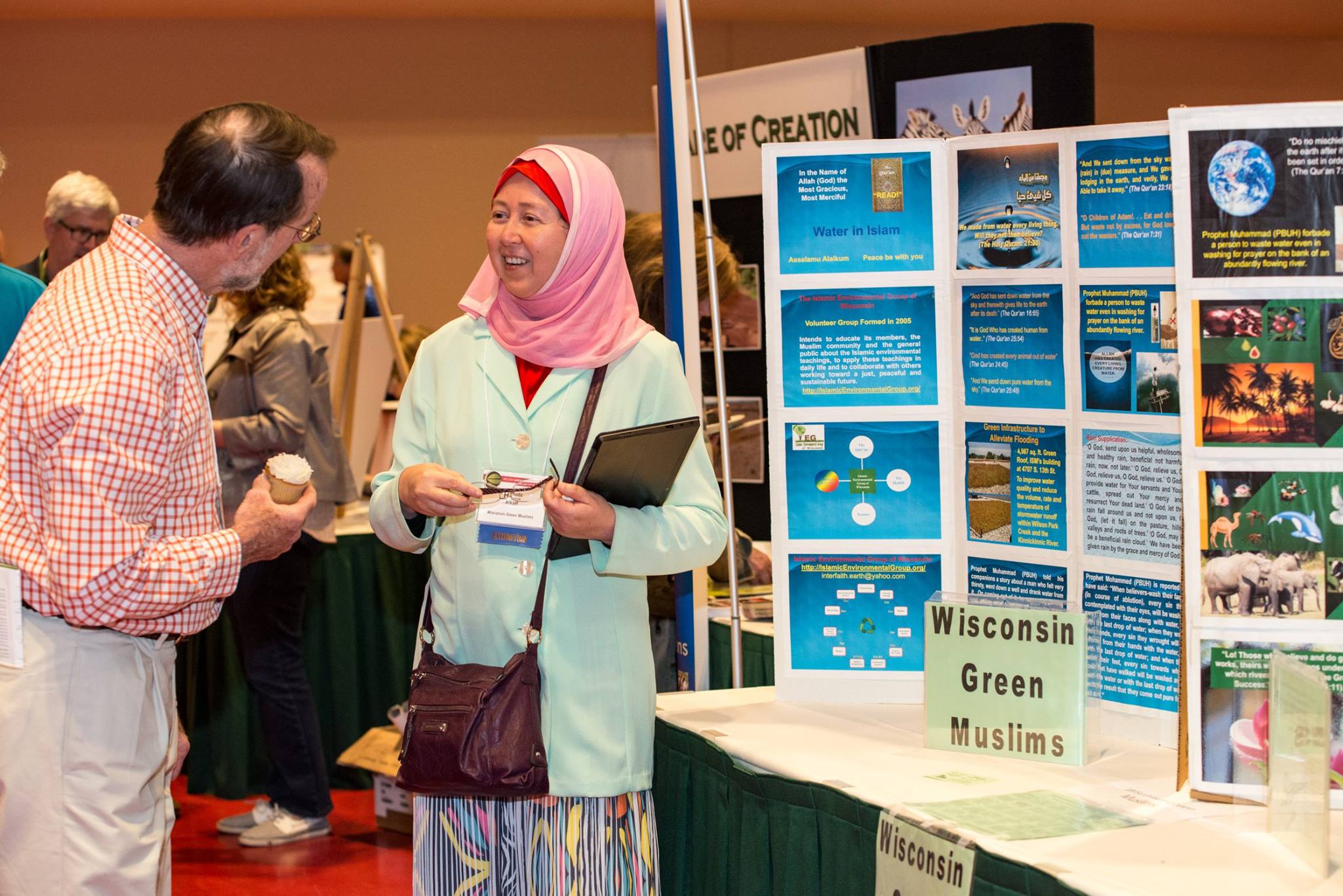
Ecologist, environmental educator, and the founder and director of Wisconsin Green Muslims, Huda Alkaff, has advocated for environmental justice in Wisconsin and nationwide for more than two decades.
What projects in Wisconsin are you involved in?
Wisconsin Green Muslims Projects has developed monthly themes we share with Islamic schools and institution that help participants focus on specific actions, whether water equity with lead issues that affect vulnerable populations or solar energy or recycling. Then we help them measure results and celebrate outcomes.
Another is the Wisconsin Faith Communities for Equitable Solar Initiative. Through over 300 one-on-one and small group conversations, listening sessions, presentations, Wisconsin Green Muslims reached more than 10,000 people of different backgrounds and a wide variety of constituents in Wisconsin to generate Just Solar guiding principles from the people, by the people, for the people, rooted in our collective values of justice, equity and inclusion.
We are also working in partnership with Allen Centennial Garden at the University of Wisconsin-Madison on the Wisconsin Islamic Garden Project. It will feature sustainable and water-wise design practices that allow for education and demonstrations, about gardening, climate change, water and land conservation, and healing that are rooted in and integral to the Islamic tradition and cultures.

Wisconsin Green Muslims’ Open Circle model is an educational tool that helps Islamic institutions and others focus on practical steps to improve their environmental stewardship.
How do you promote environmental justice?
We are centering energy democracy in our work. Through Climate Justice Healing Conversation Circles, we aim to foster collaborative approaches to overcoming shared barriers.
Our community-based, solutions-focused, frontline-led and justice-centered renewable energy efforts have two main characteristics:
- They promote racial and economic equity by focusing on those communities that have been disproportionately impacted by the harms of the fossil fuel economy and inequality, and
- They build community ownership and control of healthy, renewable energy resources, with the main focus on solar energy.

“We believe that people of faith have a great responsibility to stand up for environmental and climate justice, and to address the concerns and calamities of the poor and marginalized communities. It is a moral issue.” – Huda Alkaff
Do you work with faith groups?
People of faith, Muslims included, have a great responsibility to stand up for environmental justice and address the concerns and calamities of the poor and marginalized communities. Those with the lowest ecological footprints are the most impacted by environmental and climate disasters. It is a moral issue, and the interfaith voice standing united for environmental justice and care of creation is instrumental in mobilizing the faithful for the common good.
Wisconsin Green Muslims has two interfaith initiatives: “Wisconsin Faith and Solar” and “Faithful Rainwater Harvesting.” Both include valuable peer learning and education, assessments and collaborative benefits so that together we increase our understanding, appreciation and care of our common home.
The Wisconsin Faith, Environmental Justice and Solar Initiative received high approval ratings from people from diverse backgrounds, reaching nearly 10,000 people of at least 19 different religions and spiritualities in Wisconsin and counting It is an interfaith peer learning program built on the foundation of trust in the unifying power of solar energy to bring people of faith and morality together to care for Earth, save money to reinvest in their missions and to move forward toward an equitable 100% renewable energy future.
How do Wisconsin Green Muslims’ programs address healing?
Climate grief and climate-related stress and anxiety are experienced often within our community of climate activists. Understanding the healing process is important.
Many of us have wounds that stem from the labors of our environmental and climate justice work that are in desperate need of healing. We must ask each other, “How are you healing?” and then listen to and learn from each other on those methods through guided listening and learning sessions within the climate justice community and allies.
In 2020 and beyond, Wisconsin Green Muslims together with a few partner climate justice organizations are working on a pilot project to form a safe space and a welcoming open circle that can be virtual (at online Zoom meetings) and perhaps physical (in-person meetings) with a curriculum/toolkit that moves us together on the path of healing, rooted in our traditions, ancestral knowledge and experience, cultures, spiritualities and philosophies.

More about Alkaff
Alkaff is a founding member of the Interfaith Earth Network, Wisconsin Interfaith Power and Light and the Wisconsin Creation Care Ambassadors. She serves on the national Greening Ramadan Task Force and the Midwest Renewable Energy Association Board of Directors.
Alkaff also serves on the Southeastern Wisconsin Regional Planning Commission Environmental Justice Taskforce; the Healing Our Waters Great Lakes Coalition Equity, Advisory and Action Committee; the Wisconsin Environmental Justice and Infrastructure Initiative Steering Committee; the national Centering Equity in the Sustainable Building Sector Governance Team; and the Midwest Frontline Fund Advisory Circle. She previously served on the Milwaukee Environmental Justice Roundtable Leadership and Planning Team and the Wisconsin Environmental Equity Tool Ad Hoc Advisory Committee.
She has also served as a Wisconsin Field Organizer for the Climate Action Campaign. She co-chaired the U.S. Climate Action Network 100% Equitable Renewable Energy Action Team.
